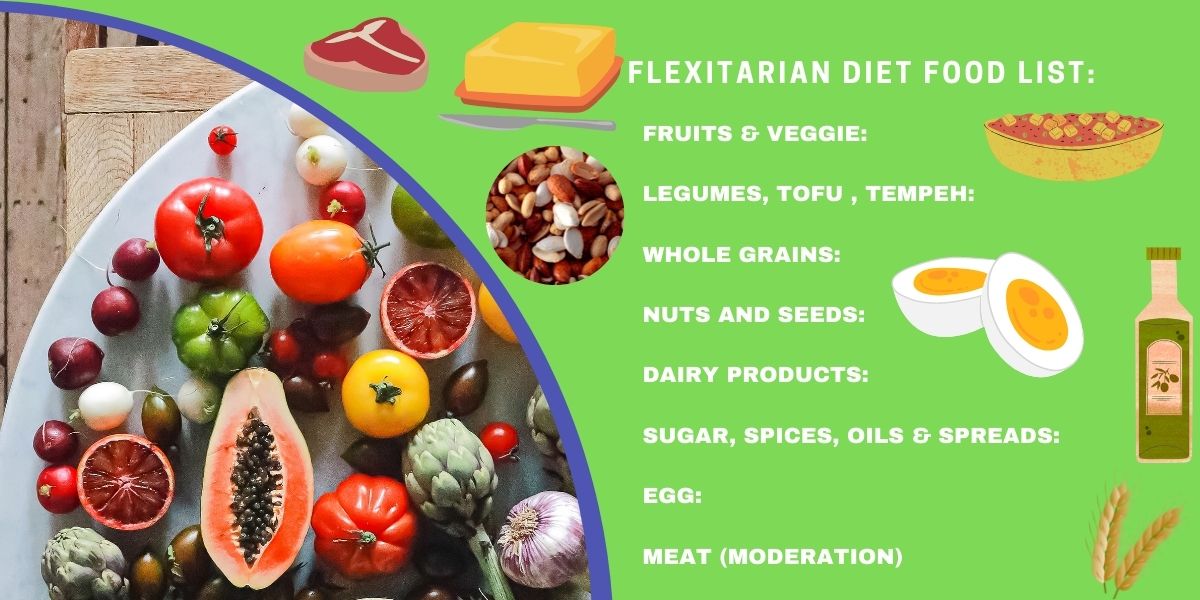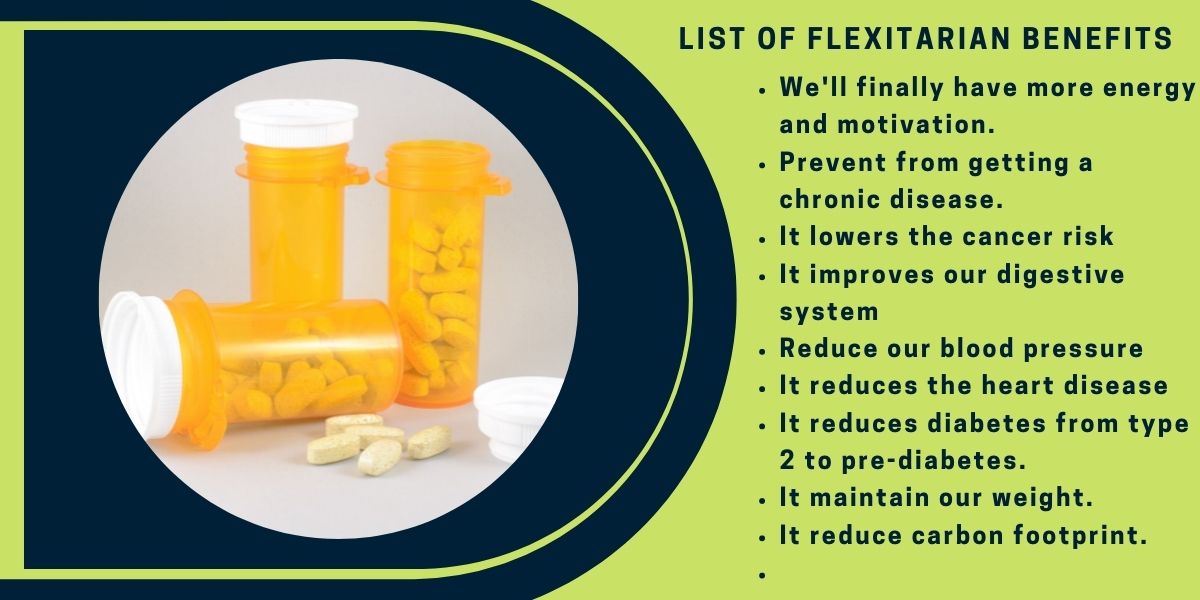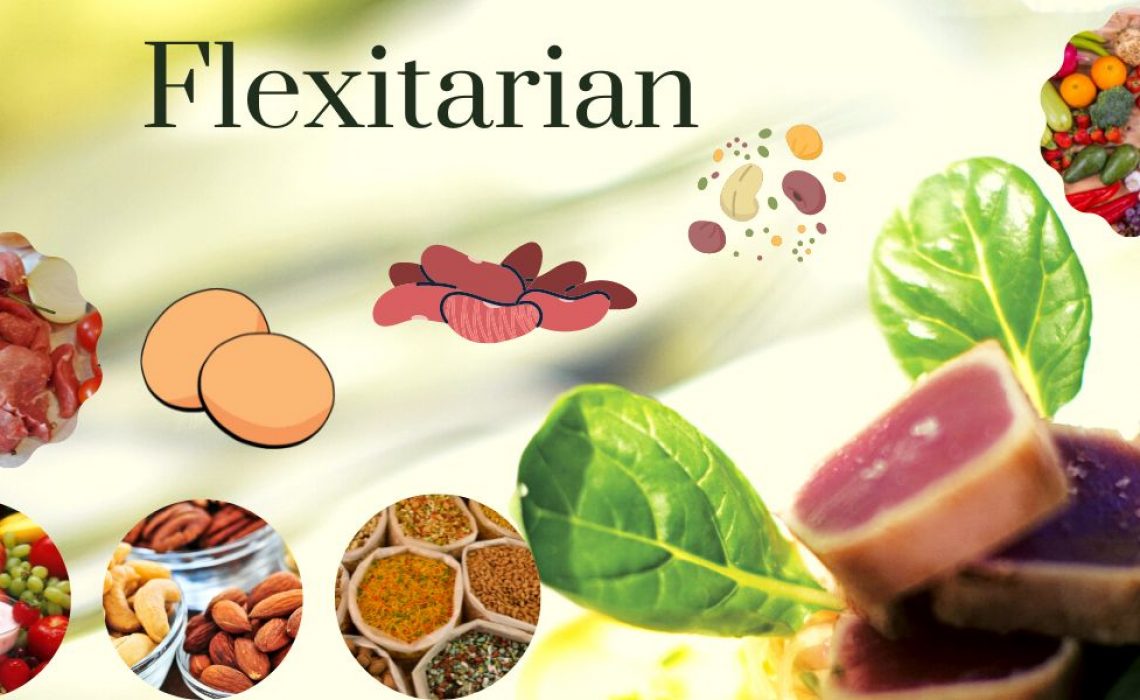Are you based on following a strict diet or continuously skipping food of your choice? Then you have come to the right place. Here we will talk about the latest diet plan that is increasingly becoming popular. It is known as the Flexitarian diet. By its name, it gives us the flexibility to choose the food of our choice. Just consider balancing the proportion of the food from plant and animal sources so that we are not deprived of the health benefits that vegans get.
Table of Contents
Toggle1. what is Flexitarian?
The word flexitarian is formed by emphasizing terms such as ‘flexible’ and ‘vegetarian.’ Flexitarian means we can eat meat and remain vegetarian; we can enjoy the heart and stay vegetarian.
And this word came into existence when registered dietitian Dawn Jackson Blatner published his book The Flexitarian Diet in 2008.
2. what is a flexitarian diet?
If you are looking for a good diet, then our flexitarian diet is a good option that does not count calories, and there are no strict rules; it gives us the freedom to eat meat too. And there is no need for other diets; flexitarian diets are enough.
The unique thing about a flexitarian diet is that we can enjoy meat by staying vegetarian and vegan on the borderline but with moderation.
3. Flexitarian diet food list:

fruits & veggies:
legumes, tofu , tempeh:
Whole Grains:
Nuts and seeds:
Dairy Products:
Sugar, spices, oils & spreads:
Egg:
Meat (Moderation)
4. Are eggs included in this diet?
Definitely, eggs are included as this diet also allows animal-based food
5. Do flexitarians live longer?
This diet provides all the essential nutrients from plant- and animal-based foods. This makes us healthier, improves our immunity, and minimizes the risk of harmful diseases, leading to a longer and happier life.
6. What to eat and what not to eat?
Allowed to eat |
Not Allowed |
| Green vegetables & Fruits | Meat (in a lot) |
| Nuts & seeds | Sugar (in a lot) |
| Dairy products | Refined carbs (in a lot) |
| Plant-based proteins | |
| Spies, oils & herbs | |
| Legumes, tofu & tempeh | |
| Whole grains | |
| Eggs | |
| Meats (in self-restraints ) |
7. Flexitarian benefits.
The doctor always recommends healthy food because a healthy diet keeps us healthy; it is not easy to follow the diet in daily life because there are many other things for us. But if we take time out of the same busy life and look at ourselves too, it prevents us from getting sick so that we can consume green vegetables, nuts & seeds, nuts, butter, dairy products, eggs, and little meats
8. list of Flexitarian Benefits

- We’ll finally have more energy and motivation.
- Prevent from getting a chronic disease.
- It lowers the cancer risk
- It improves our digestive system
- Reduce our blood pressure
- It reduces the heart disease
- It reduces diabetes from type 2 to pre-diabetes.
- It maintains our weight.
- It reduces carbon footprint.
9. Is flexitarian better than vegan?
To give any judgment in favour of any diet plan is difficult as different people have different perspectives and experiences with a diet.
For some, a vegan diet would be better, while for some, a flexitarian would be best.
Both diets have their pros and cons.
On the other hand, where vegans are strict vegetarians and rely on plant-based food, eliminating all animal food sources is difficult to follow. On the other hand, flexitarian is a flexible vegetarian that includes animal-based food besides plant-based food. It is comparatively easy to follow as it also gives us the freedom to have food of our choice. However, it also focuses on limiting the intake of animal and processed foods.
A vegan diet is much healthier but can also cause some nutrient deficiencies, such as vitamin B12, zinc, iron, and calcium, mainly provided by animal foods. A vegan diet is also not suitable for some patients.
A flexitarian diet also has various health benefits as it takes nutrients from plant and animal sources.
Which diet is better, then? It depends on us which diet we can follow stress freely and stick to it in the long run. It depends on which diet we want to follow. What we want to pursue seriously, in the long run, can only make a difference, and that can be only for us
10. Pros and cons of a flexitarian diet.
| Pros | Cons |
| The focus is on nutritious food | This may lead to some deficiencies |
| Flexible in nature | It may feel restrictive to some |
| This diet is budget-friendly | It may feel too flexible to some |
| It decreases the risk of many serious diseases | |
| Lead to a longer and healthier life: | |
| Helpful in weight loss | |
| This diet is beneficial for the environment |
Pros
- Focus is on nutritious food: In this diet includes all food groups; hence all the essential nutrition is provided to its followers. However, the primary focus is on the most nutritious food group that is plant-based.
- Flexible in nature: This diet allows us to include food of our choice, considering that more plant-based food is consumed than animal-based foods. This flexibility makes this diet popular among people and confronts less failure than other strict diets. People can enjoy any party or dinner without any stress of breaking their diet rules.
- This diet is budget-friendly: This diet doesn’t need costly meat replacements or unique recipes. We can include any meals from the diet which is under our budget. And as it focuses less on animal food, the diet becomes less costly.
- It decreases the risk of many serious diseases: More plant foods in this diet help reduce the risk of heart diseases, diabetes, high blood pressure, and cancer.
- Lead to a longer and healthier life: This diet provides all the essential nutrients from plant and animal-based foods. This makes us healthier, improves our immunity, and minimizes the risk of harmful diseases, leading to a longer and happier life.
- Helpful in weight loss: Many studies have shown that people following a semi-vegetarian or flexitarian diet have lower body weight than non-vegetarians.
- This diet is beneficial for the environment: As it is composed of decreased meat consumption, it helps in less greenhouse gas and emissions that reduce our carbon footprint and benefit the environment.
Cons
- It may lead to some deficiencies: Decreased consumption of meat may lead to depletion of some nutrients, like vitamin B12, iron, zinc, and calcium, in certain people.
- It may feel restrictive to some: The daily meat eater or lover of other animal-based foods may think it is a restrictive diet. But they can start slowly, skipping their meat not too frequently, then adding more meat-free meals.
- It may feel too flexible to some: Some people may take it as too relaxed and take the junk and processed food. For this, we must be conscious that we are following a diet plan and sticking to its core principle.
Conclusion
As we have understood, a Flexitarian diet is flexible, giving us the right to include food of our choice, which falls under this diet plan. As food sources, we need to check the proportion we take from both sources. We need to increase the consumption of plant sources and decrease the intake of animal sources. This will positively change our overall health and contribute to a healthy environment.









